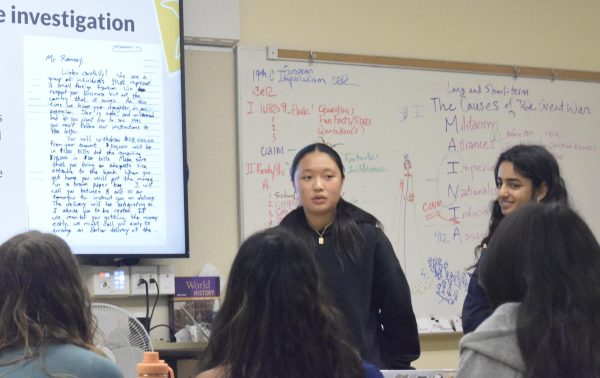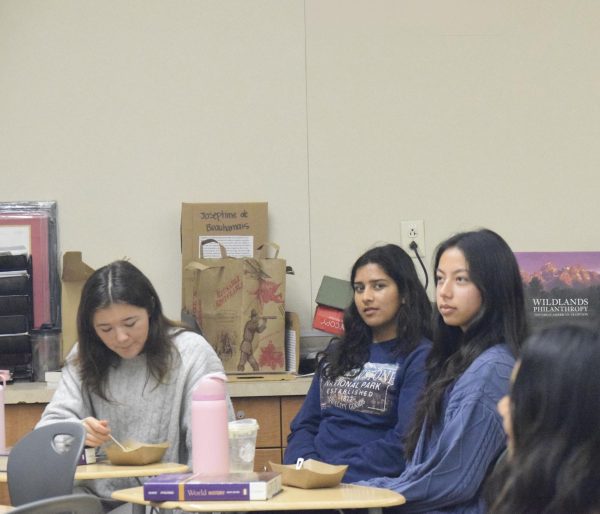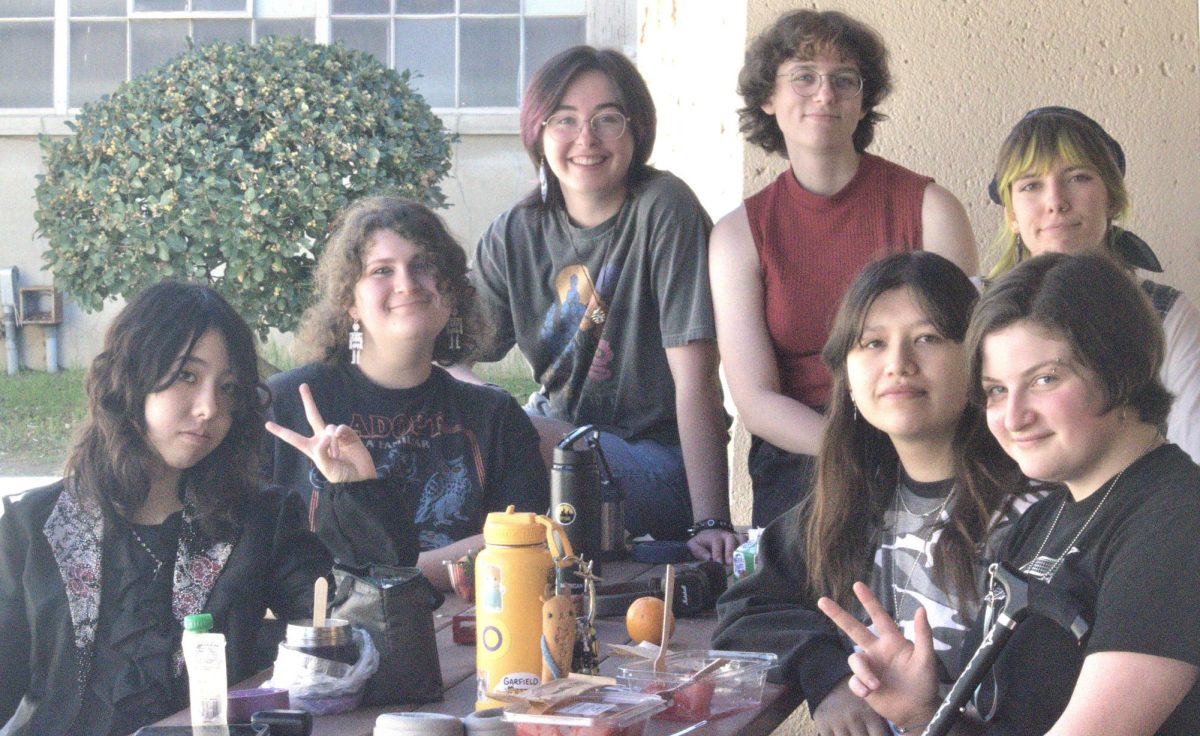Anthro is interested in looking into new clubs at Palo Alto High School that educate and advocate for social issues. Some of these issues that are discussed at these clubs span from racism awareness to advocating for accessibility for people with disabilities. Here are some that caught our eye.
Accessibility and Inclusion Society of Palo Alto (AISPA)
The Accessibility and Inclusion Society of Palo Alto club aims to bring awareness to Paly by improving our environment for people with disabilities, petitioning for accessibility around campus. The club meets every Monday during lunch in Room 807.
Seniors Kira Loginova and Catherine Funtu serve as the club president and vice-president, respectively. AISPA has advocated for accessibility for students with disabilities around campus. One of these campaigns was for campus elevator permits to be updated.
“We had a campaign for the elevators to have their permits replaced because they were three years out of date,” Loginova said.
By renewing the elevators’ contracts, AISPA increased inclusion within our school environment by making movement around campus easier and more accessible for those with disabilities.
Loginova’s motivation to start the club was due to her disability, which she did not disclose to Anthro. This inspired her to start AISPA as a way to advocate for better accessibility around campus for people like her.
“I found that a lot of things were no longer as accessible to me, and Paly didn’t seem as inviting anymore, so I wanted to make that change,” Loginova said. “I wanted to do something for the community that would help others like me as well.”
Currently, the club is trying to advocate for improvements to the cell phone policy in the Wellness Center, where students are not allowed to have their phones with them.
“Now we are working on getting some improvements made to the Wellness Center, specifically to the phone rule,” Loginova said, “A lot of people need to use that to communicate with doctors, parents, what have you.”
This brings accessibility to those who need it, like those with health concerns or disabilities that require constant monitoring by a health professional to be safe.
“What is really special about our club is that it brings a lot of awareness to things that most able-bodied people don’t really think about in their daily lives,” Funtu said.
The AISPA club doesn’t just advocate for change for those who need change in our community, but also empowers its members to stand up for themselves and others like them.
“I think that our club members definitely feel seen … and empowered and that they can make a change that is good in our school,” Funtu said, “Not just for themselves but for other students that could be struggling in the same way.”

Criminal Justice Club
The Criminal Justice Club, led by sophomores Akansha Chatterjee and Jessie Kwan, meets every Thursday during lunch in Room 810. They look at legal cases in the history of the United States, ranging from the Watergate scandal to the Central Park Five case.
“I think a lot of information about the legal system is very secretive, and it’s not common knowledge,” Chatterjee said.
The club strives to educate its club members to be more educated on the legal climate in the United States, looking at important cases throughout history and studying them to gain a deeper and better understanding.
“I think the main thing about my club is to educate, and there are a lot of key trials that we have heard about, but I know that a lot of people don’t actually dive deep and try to discover facts,” Chatterjee said.
What makes the Criminal Justice Club truly stand out from the rest is that it takes time to comb through each issue in meetings and educate others on topics so that club members will be better equipped to understand legal issues.
“We actually take the time to dive deep into each aspect, like forensics, the legal process, or the hearings of these cases,” Kwan said. “And I think that sort of detail is something that you can’t find in other clubs.”
The club chooses the legal cases it covers by specifically choosing cases in American history that contribute to major changes in the U.S. legal system, as well as cases that use revolutionary technology that contributes to how far the legal system has come in the conviction of crime.
Since this club is relatively new, activities and programs are still in their beginning stages.
“We have some activities planned that we are trying to do in the future, which are either mock trials or asking people from the legal sector to come in and talk to us, but we are still in the planning process of that,” Kwan said.

Social Justice Club
The Social Justice Club, led by senior Oliver Chancellor, focuses on addressing social justice issues and meets every other Wednesday in Room 404 during lunch.
Chancellor markets the Social Justice Club as an alternative to the Social Justice Pathway that some Paly students might not have a chance to be a part of.
“I want to give [people] an opportunity to [learn about social justice] in a little bit more of a fun setting and give them opportunities to speak about topics that they might not have the opportunity to do otherwise,” Chancellor said.
Some specific social issues that are discussed within the club are racism, LGBTQ+ rights, and immigration, as well as current issues such as the recent approval of the Ethnic Studies class by the Palo Alto Unified School Board.
Chancellor tries his best to engage the club with fun activities that bring club members together while providing an open-minded environment where everyone can share their thoughts.
“We try to bring up topics that are relevant right now, or we like to bring up recurring topics in our classes,” Chancellor said. “We are doing an activity called ‘The Line’ where we give a hot take … and we allow [the club members] to have their own opinion on it.”
The club encourages members to not only defend their own opinions but also put themselves in other people’s shoes and learn new ideas from others.
“I think it’s important to not only consider your side and their opinion but also the opinions and views of the opposing side,” Chancellor said.
